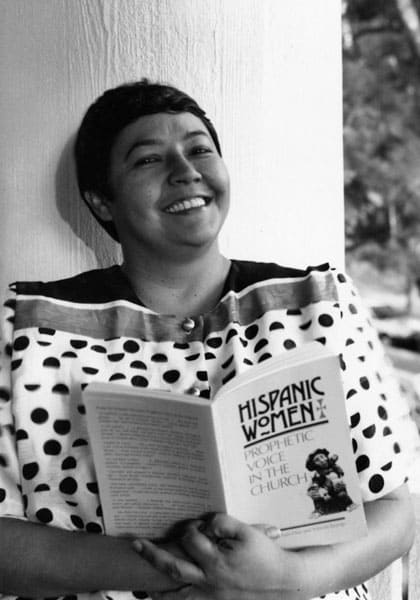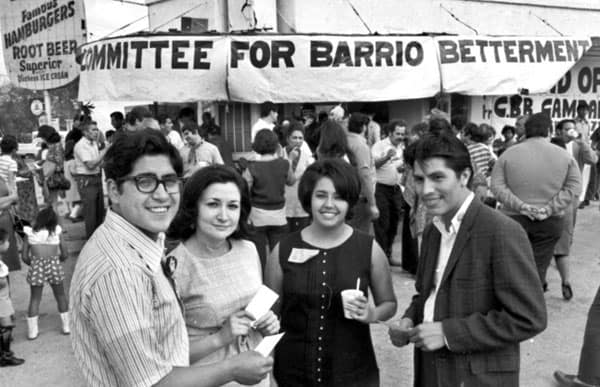Our Next VP?
Hubert Collins, American Renaissance, March 30, 2016

Julián Castro
Hillary Clinton will almost certainly be the Democratic candidate in November. This means she may well be the next president of the United States. Don’t let the hopes many of us have pinned on Donald Trump blind you to electoral reality. For the last quarter century, the Democratic Party has won the popular vote in every national election except one, and every year, the demographic shifts favor the Democrats.
While Mrs. Clinton is revolting to most people on the Right, the company she keeps (and remember the old adage: “personnel is policy”) is worse. And this brings us to Julián Castro, former Mayor of San Antonio, and President Obama’s Secretary of Housing and Urban Development. It has been rumored for some time that he will be Mrs. Clinton’s choice for vice president. Even if he is not on the ticket, his prominence in the Democratic Party and his aggressive campaigning for Mrs. Clinton over the last few months guarantee that Secretary Castro would play a prominent role in a Clinton administration.
Julián Castro is a white advocate’s nightmare. Here is a brief biographical sketch.
Radical son
Mr. Castro’s parents never married, and he was raised mostly by his mother “Rosie” Castro, a radical chicana activist.

Rosie Castro
Miss Castro became politically active as a student at Our Lady of the Lake University in San Antonio. Initially she joined the local Young Democrats, but she quickly moved on to the newly formed Raza Unida Party (“United Race Party”). Not to be confused with the National Council of La Raza, RUP is a now defunct party that attracted chicanos and mestizos who were sick of a Democratic Party they felt did not meet their demands.

The party’s appeal was one of racial solidarity instead of ideology. This is clear not just from its Aztlan flag but from its website and Facebook page. Indeed, it is with this group that the notorious Professor José Ángel Gutiérrez, a cheerleader of falling white birth rates and national Balkanization, got his start. Mrs. Castro served as its Bexar County, Texas, party chair, and ran unsuccessfully for the San Antonio city council in 1971 with the help of an offshoot group, the “Committee for Barrio Betterment.”

Mrs. Castro, second from the right, during her radical youth.
Julían Castro has said this about his upbringing:
My mother is probably the biggest reason that my brother and I are in public service [Joaquín Castro is a Democratic congressman from Texas]. Growing up, she would take us to a lot of rallies and organizational meetings and other things that are very boring for an 8-, 9-, 10-year-old. What I did get from my mother was a very strong sense that if you did public policy right, and you did well in public service, that it’s a positive influence on people’s lives.
Of his college experience he admits:
Joaquín and I got into Stanford because of affirmative action. I scored 1,210 on my SATs, which was lower than the median matriculating student. But I did fine in college and in law school. So did Joaquín. I’m a strong supporter of affirmative action because I’ve seen it work in my own life.
Rise to power
After college, Mr. Castro went back to his native San Antonio and became very active in local politics. In 2001 he became the youngest city councilman in the history of the city, and four years late ran for mayor, losing by just 4,000 votes. In 2009, he ran for mayor again, this time successfully.
In many ways, Mr. Castro is a Hispanic parallel to the current president. Both were raised by single mothers, both flirted with radicalism in their youth, both used affirmative action to get a top-tier education, and both had mixed successes as local politicians before being cast into the national spotlight. Much like Mr. Obama’s brief period in the senate, Mr. Castro’s five years as mayor were not eventful. In 2004, Mr. Obama was the first black to give the keynote address at the Democratic National Convention. In 2012, Mr. Castro became the first Hispanic to do so. In his address, Mr. Castro made much of his multi-culti identity, just as Mr. Obama had. He shared many anecdotes about the tough lives his mother and grandmother led, saying of Mitt Romney, “He just has no idea how good he’s had it.”
Predictably, as with Mr. Obama, the leftist press calls Mr. Castro “post-racial.” The New York Times glowingly profiled him in 2010 in a piece entitled “The Post-Hispanic Hispanic President,” even making much of his limited grasp of Spanish. Mr. Castro can pivot between being a non-threatening, “off-white” Democrat and a Latino whom Hispanics can support.
What Sam Francis said of Mr. Obama’s blackness applies equally to Mr. Castro’s brownness:
His racial identity or supposed lack of it enables him to be both black and non-racial, white and multiracial, at the same time.
When he wants to be black, he can be and is. He calls himself black and the media routinely identify him as a “black” or “African-American.”
But he can also be white or not racial at all, which is useful when he’s presenting himself as “above” race and appealing to the white voters he’ll need if he’s going to be elected or when he’s denouncing his critics and opponents for playing race cards as he himself of course would never do.
Perhaps it was the similarities between the two men that led Mr. Obama to select Mr. Castro for a cabinet position, or perhaps it was just a sop to Hispanics. Either way, in 2014 Mr. Castro stepped down as mayor of San Antonio and became Secretary of Housing and Urban Development.
The position of HUD Secretary was created by President Lyndon Johnson to manage his “Great Society” programs, and it has attracted many anti-white politicians, such as Jack Kemp and Andrew Cuomo. Mr. Castro is no exception. In his new role, he has made it a top priority to spread “diversity” across the land through new federal laws and regulations.
In the summer of 2015, Mr. Castro announced new rules better to enforce the 1968 Fair Housing Act, which made it illegal for landlords or property owners to discriminate against people based on their “protected class.” While shockingly underreported, the new “Affirmatively Furthering Fair Housing Rule” does for housing what race preferences and quotas do for employment. Equal opportunity is no longer good enough; Mr. Castro wants equal outcomes.
The new rule is filled with dense legalese and is hundreds of pages long (find it here), but its goal is simple: eliminate all “whitopias.” Stanley Kurtz, one of the few vocal critics of the AFFHR summarized it this way:
AFFH obligates any local jurisdiction that receives HUD funding to conduct a detailed analysis of its housing occupancy by race, ethnicity, national origin, English proficiency, and class (among other categories). Grantees must identify factors (such as zoning laws, public-housing admissions criteria, and “lack of regional collaboration”) that account for any imbalance in living patterns. Localities must also list “community assets” (such as quality schools, transportation hubs, parks, and jobs) and explain any disparities in access to such assets by race, ethnicity, national origin, English proficiency, class, and more. Localities must then develop a plan to remedy these imbalances, subject to approval by HUD.
The recent Supreme Court decision in Texas Department of Housing and Community Affairs v. The Inclusive Communities Project makes it likely that the federal government will be able to sue localities that do not work to “remedy these imbalances,” and, of course, it can also withhold funds. Mr. Kurtz notes the ways in which local governments will pay for this massive integration scheme:
1) Inhibit suburban growth, and when possible encourage suburban re-migration to cities. This can be achieved, for example, through regional growth boundaries (as in Portland), or by relative neglect of highway-building and repair in favor of public transportation. 2) Force the urban poor into the suburbs through the imposition of low-income housing quotas. 3) Institute “regional tax-base sharing,” where a state forces upper-middle-class suburbs to transfer tax revenue to nearby cities and less-well-off inner-ring suburbs (as in Minneapolis/St. Paul).
White suburbanites will thus be forced to pay for their own dispossession. Higher taxes will make their schools worse by importing non-white students. Higher taxes will also pay for non-white housing in once-safe neighborhoods.
The AFFH is a perfect example of the subtle, bureaucratized tyranny that is tightening the vice on whites. It isn’t something out of George Orwell’s 1984, but it will slowly destroy neighborhood after neighborhood in the name of diversity. Mr. Castro justifies dispossession with typically leftist arguments: “We know where you live matters. Children who live in good neighborhoods do much better than those who are stuck in poverty.”
He clearly believes that ZIP code matters more than genes:
As a former mayor, I know firsthand that strong communities are vital to the well-being and prosperity of families. Unfortunately, too many Americans find their dreams limited by where they come from, and a ZIP code should never determine a child’s future. This important step will give local leaders the tools they need to provide all Americans with access to safe, affordable housing in communities that are rich with opportunity.
It’s not certain how closely Julián Castro was involved in drafting the new rule, but he is happy to be the face of it. More important, he is determined to enforce it, and clearly prefers reengineering white America to being just another Texas mayor. In a way, he is the opposite of Ronald Reagan’s HUD Secretary, Sam Pierce, who, though a black man who had defended Martin Luther King Jr. in the Supreme Court, dutifully cut billions of dollars from Section 8 housing.
Whatever role Mr. Castro plays in a Clinton administration will serve as a springboard for his own presidential run in 2024. If you are one of those who do not vote, or who refuse to vote for the “lesser of two evils,” keep Mr. Castro in mind this November, no matter who wins the Republican nomination.















